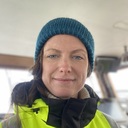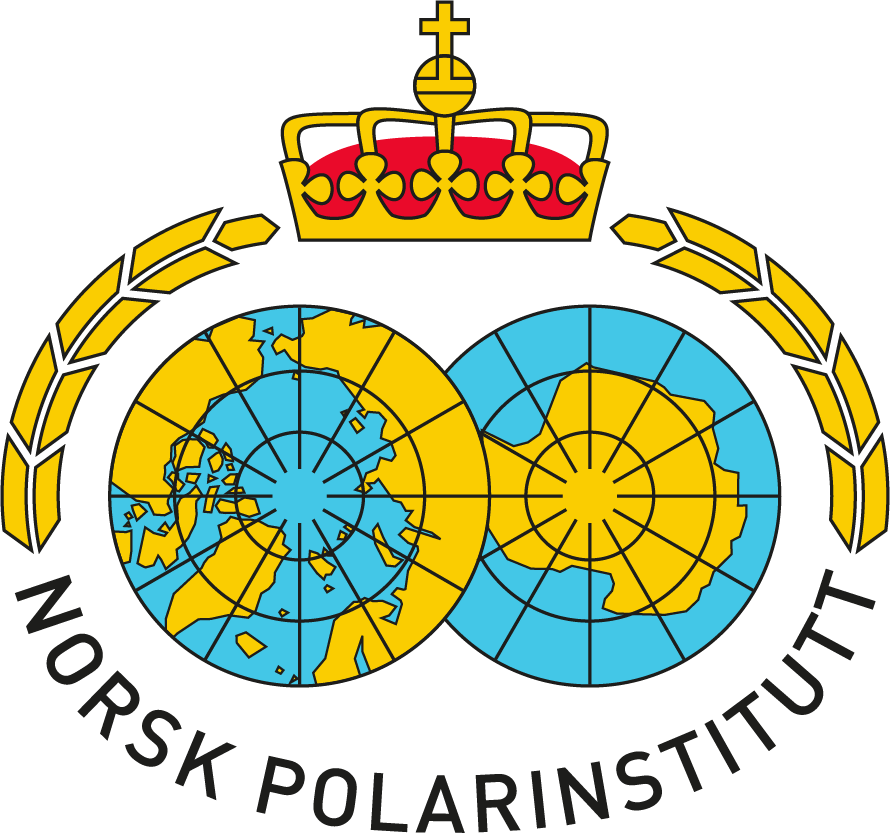The Ny-Ålesund Research Station – Sverdrup is located at the northern side of Brøgger Peninsula at the southern shore of Kongsfjorden, Svalbard.
The Norwegian Polar Institute has had year-round operations in Ny-Ålesund since 1968. The present building Sverdrup, a modern 700 m2 building, was opened in 1999.
The institute has a permanent staff of five on site and operates permanent research programs and supports visiting scientists with established or new research activities in Ny-Ålesund.
Research at Sverdrup
The Norwegian Polar Institute is the primary research institute and host institute for several research and monitoring programmes in the Ny-Ålesund area. The engineers at Sverdrup are responsible for daily service and operation of instruments, including measurement programmes owned by institutions from other countries.
- The biological studies with the station as a base include monitoring programs on reindeer, arctic fox, polar bear and marine mammals and birds. An important activity at the station is the effect studies of long-transported pollutants on arctic birds and mammals.
- Glacier monitoring in the Ny-Ålesund area is another major activity at the station. Mass balance studies have been performed on several glaciers in the area, and the oldest records on mass balance are from 1967.
- The monitoring of landfast sea ice in Kongsfjorden started in 2003 and includes both in-situ measurements of ice properties and daily monitoring of the ice extent.
- Long term monitoring of meteorological data (since 1969) is continuously performed in Ny-Ålesund (data available from www.eklima.no).
- Daily observations of atmospheric ozone as well as filtered and weighted UV-radiation are performed with a number of instruments.
- The Zeppelin Observatory, run by the Norwegian Polar Institute, is located on the nearby mountain ridge at the elevation of 475 m.a.s.l. The monitoring of incoming radiation, atmospheric trace gases, particle size distribution and radiative properties, together with other atmospheric parameters are conducted by several institutes, with Norwegian institute for Air Research (NILU), Stockholm University and the Norwegian Polar Institute being the main users.
Facilities/services
The Norwegian Polar Institute offers research facilities to visiting scientists: offices with phone and internet, guest computers, two small workshops for smaller electronical and mechanical repairs, a small guest lab with sink, workbench and refrigerator, a large roof platform for instruments, a library, and a lounge for meetings and social gatherings.
The institute has an extensive and well-equipped logistics department offering logistical support like boats, snowmobiles and sledges, field equipment like tents, sleeping bags, primus, clothes, etc., and safety equipment. A complete overview can be found in the product catalogue.
Norwegian Polar Institute also offers transport services with boat for researcher working in the field outside of Ny-Ålesund.
The settlement of Ny-Ålesund is run by Kings Bay AS, the company providing the infrastructure, housing and boarding facilities in Ny-Ålesund, as well as being responsible for the flight traffic and the quay.
Booking
All visitors to Ny-Ålesund must be guests of one of the institutions, with the exception of some VIP and media visits. Scientists from nations not represented with own acticity in Ny-Ålesund should come through Norwegian Polar Institute.
Each present institution asses requests for their support. The assessment should include quality of research, compatibility with existing research in Ny-Ålesund and competence and suitability of personnel. Adherence to Svalbard law and environmental impact must also be considered. The Governor of Svalbard has a useful guide for scientists in Svalbard.
The deadlines for applications and bookings to The Norwegian Polar Institute in Ny-Ålesund are
- 1 February for spring season
- 1 April for summer season and space at the Marine Lab
- 1 September for autumn/winter season
All services are booked through Research in Svalbard (RiS). The RiS booking system handles bookings of transport (flight Longyearbyen–Ny-Ålesund), lodging, fright, storage and freezer, equipment/support from stations, office, safety course / weapons* from Kings Bay, provisions, chemicals, marine laboratory and MS Teisten workboat).
The research project must be registered in the RiS portal prior to booking services. Allow some days for the project to receive a RiS number.
After initial booking in RiS, any additional details regarding equipment/support from Sverdrup can be specified through e-mail to materialforvalter@npolar.no. Available equipment can be found in the Polar Institute’s product catalogue.
The Norwegian Polar institute is also part of the My-Ålesund Access Programme offered through the EU project INTERACT. Learn more about INTERACT, how to apply, deadlines, etc.
* Polar bears can be encountered in the surroundings of Ny-Ålesund all year round. Scientists in the field are required to always carry a VHF radio and a rifle for safety. Due to legal restrictions, the Norwegian Polar Institute can only provide rifles to researchers employed by the institute. Other researchers need to rent rifles, and participate in the mandatory rifle training and safety course from Kings Bay. Documented shooting courses from The University Centre in Svalbard (UNIS) or The Norwegian Polar Institute can replace the rifle training.
Research in Ny-Ålesund
Ny-Ålesund and its area is ideal for research and monitoring of contemporary environmental changes related to climate change issues, long range transport of pollutants, UV-radiation and related biological effects, physiology, eco-toxicology, Arctic marine and terrestrial ecosystems, as well as research from other disciplines.
- The research in Ny-Ålesund is coordinated through the Ny-Ålesund Science Managers Committee (NySMAC) and the four Flagship programs:
- Kongsfjorden System
- Terrestrial Ecosystem
- Atmospheric Research
- Glaciological Research
NySMAC was established in 1994 and includes representatives from all parties with major vested interests in Ny-Ålesund. The NySMAC Secretariat is located at the Norwegian Polar Institute in Tromsø.
The science contributes to climate research programs and international networks, like
- Sustaining Arctic Observing Networks (SAON)
- Global Atmosphere Watch (GAW)
- Global Cryosphere Watch (GCW)
- Svalbard Integrated Arctic Earth Observing System (SIOS)
Ny-Ålesund has a great potential for comparative bi-polar studies based on its broad measurement programs. An overview on individual research projects in Ny-Ålesund can be found in the RiS database.
Contact
Norwegian Polar Institute
Sverdrup
9173 Ny-Ålesund
NORWAY
Telephone: +47 79 02 74 00
Telefax: +47 79 02 70 02
Email: HeadNPI.Nya@npolar.no
Employees

Ingrid Kjerstad
Research coordinator

Svein-Torgar Oland
Logistics technician

Jan Ivar Pettersen
Logistics manager (Sverdrup)

Arnt Rennan
Leader NPI NY-Ålesund

Elias Sundby Aukan
Engineer (Sverdrup)

Hege Iren Svåsand Kråkevik
Engineer (Sverdrup)

Lars Erik Sørgård
Engineer (Sverdrup)
Relevant links
